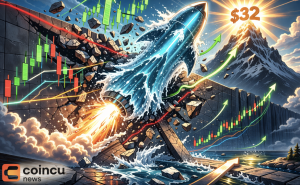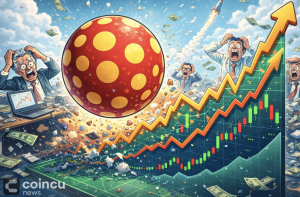A digital asset ecosystem refers to a comprehensive platform that encompasses various elements within the cryptocurrency space. It includes different types of cryptocurrency tokens, non-fungible tokens (NFTs), stablecoins, as well as products and services related to digital assets. Additionally, futures trading is also considered as part of this ecosystem.
The growth of the digital currency market, which began with the introduction of Bitcoin in 2009, has led to the expansion of the digital asset ecosystem beyond cryptocurrencies. This ecosystem has made its presence felt in various industries, including art, finance, insurance, real estate, gaming, healthcare, and gambling.
At its core, the digital asset ecosystem is a collection of different asset classes that are secured by blockchain technology. These asset classes include cryptocurrencies, NFTs, stablecoins, central bank digital currencies (CBDCs), as well as asset-backed and security-backed tokens.
One of the key advantages of the digital asset ecosystem is that it allows for the digitization of traditional assets. By digitizing these assets, they become more accessible to investors, resulting in reduced associated costs. This digitization also brings increased transparency and efficiency to asset ownership and trading.
The digital asset ecosystem operates on various protocols and networks. These protocols enable professional investors to explore different areas of the crypto market, such as yield farming and blockchain gaming. Let’s take a closer look at some of the subdivisions and branches within the digital asset ecosystem:
What are cryptocurrencies?
Cryptocurrencies, such as Bitcoin and Ethereum, are the most well-known and widely used assets within the digital asset ecosystem. They are decentralized digital currencies that utilize cryptography for secure transactions and to control the creation of new units. Bitcoin, for example, was the first cryptocurrency and remains the most valuable and recognizable.
These cryptocurrencies are built on blockchain technology, which is a decentralized and distributed ledger that records all transactions across a network of computers. This technology ensures transparency and security, as each transaction is verified by multiple participants within the network.
What are Non-Fungible Tokens (NFTs)?
Non-fungible tokens, or NFTs, have gained significant attention in recent years. Unlike cryptocurrencies, which are fungible and can be exchanged on a like-for-like basis, NFTs are unique and represent ownership or proof of authenticity of a specific digital asset. These assets can include digital art, virtual real estate, collectibles, and more.
NFTs are also built on blockchain technology, allowing for the verification and provenance of digital assets. Artists and creators can tokenize their work as NFTs, enabling them to sell and trade their art directly to collectors without the need for intermediaries.
What are stablecoins?
Stablecoins are a type of cryptocurrency designed to minimize price volatility. Unlike traditional cryptocurrencies, which can experience significant price fluctuations, stablecoins are pegged to a stable asset, such as a fiat currency (e.g., USD, EUR) or a commodity (e.g., gold).
These stablecoins provide stability and a predictable value, making them suitable for various use cases within the digital asset ecosystem. For example, stablecoins can be used for remittances, cross-border payments, and as a medium of exchange on decentralized finance (DeFi) platforms.
What are Central Bank Digital Currencies (CBDCs)?
Central bank digital currencies (CBDCs) are digital representations of a country’s fiat currency issued and regulated by its central bank. CBDCs leverage blockchain or distributed ledger technology to enable faster, more efficient, and secure transactions.
The introduction of CBDCs aims to combine the benefits of cryptocurrencies, such as transaction speed and security, with the stability and trust of traditional fiat currencies. Several countries, including China, Sweden, and the Bahamas, are exploring or implementing CBDC projects.
What are Asset-Backed and Security-Backed Tokens?
Asset-backed and security-backed tokens represent ownership or investment in real-world assets, such as real estate, commodities, or company shares. These tokens enable fractional ownership and allow for the efficient transfer and trading of these assets.
For example, tokenization of real estate allows investors to own a fraction of a property and trade it seamlessly on digital asset platforms. This opens up investment opportunities and liquidity for traditionally illiquid assets.
The digital asset ecosystem has the potential to transform traditional industries by leveraging blockchain technology. It enables the digitization and democratization of assets, making them more accessible and efficient. As the ecosystem continues to evolve, it is important for investors and individuals to stay informed about the latest developments and opportunities within this space.
Author:
Varit Bulakul is the president of investment banking and digital assets at The Brooker Group, a publicly listed financial consultancy and capital management company based in Thailand. Varit played a crucial role in the Brooker Group’s transition to digital assets and is driving the company’s vision of integrating the digital asset ecosystem into traditional financial services. The Brooker Group holds the distinction of being the first publicly listed company to directly invest in DeFi and DApps projects.
Prior to joining the Brooker Group, Varit worked as an auditor at Deloitte in Bangkok. He holds a BA in Science in Accounting and Finance from Lehigh University and a master’s degree in Accounting from Boston College.














